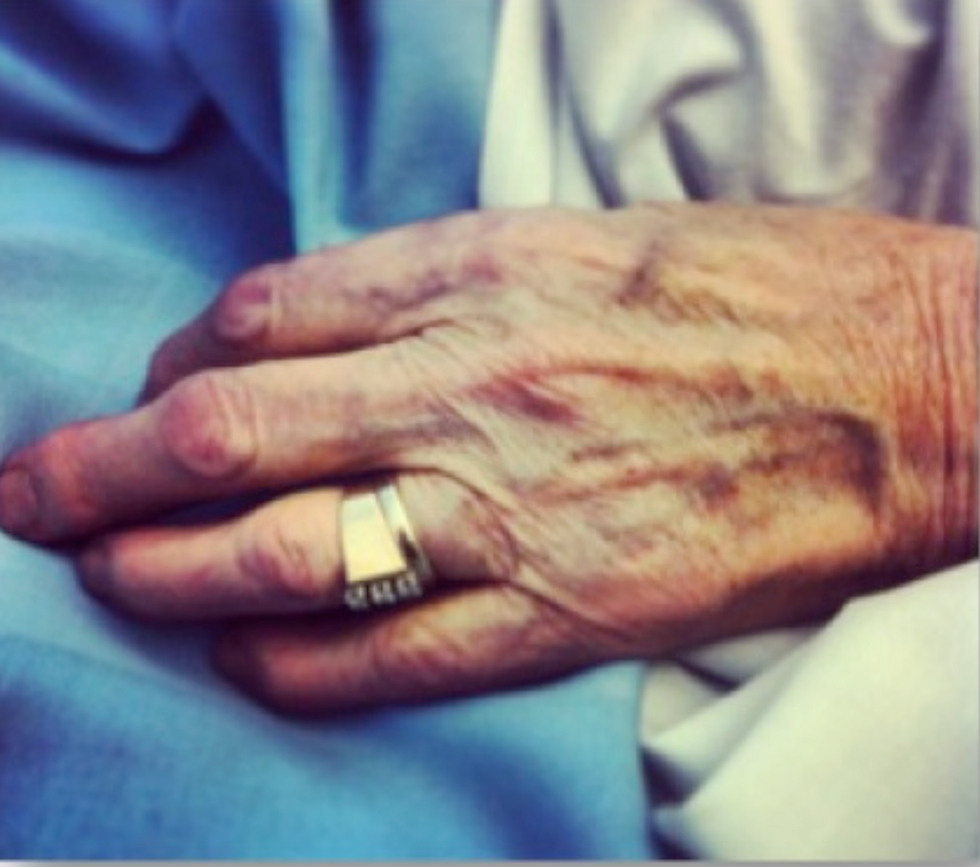Keep Banging on That Drum
- Sue Robins

- Sep 12, 2020
- 3 min read
Updated: Sep 13, 2020

I’m always blahblahblah storytelling, blahblahblah.
This essay is about storytelling.
For the past few years, the University of British Columbia (UBC) has hosted an innovative afternoon for their 2nd year medical students. The topic is about children with chromosomal “abnormalities” (ugh, well, I don’t like the title, but baby steps, right?) and it features presentations by family members to small break-out groups of 27 students. This year this class was held on Zoom.
I was one of the seven family speakers and I was paired with a facilitator, Dr. Christine Loock, a Developmental Pediatrician at BC Children’s Hospital and overall awesome human being. Dr. Loock introduced me and did the crucial work of making sure that I had a safe space to speak and the students had a safe space to ask questions.
This is extraordinary, non-textbook learning. It is a chance for students to hear about a family’s story, told in whatever way the family wants to tell it. I introduced my family, thanked the students for dedicating their career to caring for people, asked them to reflect whether they knew anybody with an intellectual disability and encouraged them to ask non-medical questions about having a child with Down syndrome. I then read my essay called About Dr. Darwish.
The most important parts about the presentation were not about me talking. Because it was held on Zoom, both my son and husband were at home. Aaron popped into the session. I asked him what he wanted these future doctors to know. He said:
1. Respect me
2. Don’t call me the ‘R’ word
I hope in my heart, if they remember anything, they remember that.
I asked my husband to answer one of the student’s questions, which was about how having Aaron in our lives has changed us. It was good for the audience to hear from a dad’s perspective – because in fact, all the family speakers in the other sessions were women. This Zoom/work from home thing allowed my husband to participate, so the students could hear a rare perspective about being the father of a disabled son.
The Zoom session began and all the students’ videos were turned off. We asked if they were comfortable turning on their videos and my screen lit up with all the beautiful faces of future doctors, committed to working in health care, even during the terror that is a global pandemic. Seeing their faces on the screen took my breath away.
I know that medical students need to learn a boatload of information over their four years of schooling and their curriculum is jam-packed with anatomy, physiology, pharmacology, etc etc. I admire them for their academic smarts.
But practicing as a doctor – or any clinician – is not done in a vacuum. Doctors work with people. And people communicate about themselves through stories, not through data. Imagine if all medical schools committed to balancing that textbook learning with teaching from real, live patients and families. This would add the element of humanity to health care that I so desperately needed when I had cancer.
Listening to understand patient and family stories is a crucial skill for health professionals – not just for diagnostic reasons – but for human reasons. It does everybody’s heart good when we can connect as people instead of professional titles and diagnoses.
I’ll keep banging on this drum: storytelling matters. Kudos to Dr. Esther Lee, who is leading the way for this type of storytelling in her role as the Clinical Instructor at the UBC's Faculty of Medicine and Leslie Louie, who is the Family Engagement Advisor at Sunny Hill Health Centre and does the important work of supporting the family speakers.
I want to especially thank the 200+ medical students who listened to the family speakers with an open heart and demonstrated they were curious about our lives beyond the hospital by asking interesting questions. You are the future of health care. These students made me feel, for the first time in the past six months during this pandemic, a glimmer of hope about the future of health care.
Are you interested in keeping in touch and receiving occasional emails direct from Sue? Subscribe to her email list today!





Comments